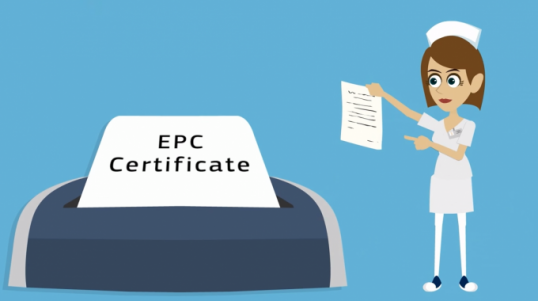They are all professions in which your qualifications can be verified easily across borders via the European Professional Card (EPC).
In this article, we outline the basics of the EPC, but more detailed information is available online via Your Europe. The national assistance centres can provide more information on rules in a specific country, or for any further questions about the EU you can contact Europe Direct.
The EPC is not an actual card – instead it is an electronic procedure that allows you to have your professional qualifications quickly and easily recognised in another EU country. It also means you can keep track of your application for recognition online and re-use already uploaded documents to start new applications for different countries.
In the future, the EPC procedure may be extended to other professions than those mentioned above. For the time being, professionals in other industries must rely on the standard procedures for accessing a regulated profession in another country in order to have their qualifications recognised.
The procedure is available to people who want to practise their profession in another EU country on a temporary and occasional basis, or those who want to settle in another EU country and practise their profession there permanently.
The EPC is the electronic proof that you have passed administrative checks and your professional qualifications have been recognised by the country you want to work in, or that you have met the conditions to provide services temporarily in that country.
When an application for recognition is approved by the relevant host country authorities, you can generate an EPC certificate in pdf format, which includes a reference number that a prospective employer can use to check its validity.
If you plan to settle in a foreign country long-term, it may be optional or even mandatory to register with a professional body, such as the Royal Pharmaceutical Society or the Chartered Society of Physiotherapy in the United Kingdom, or to undergo additional checks including language ability, before you are allowed to start practising your profession. You can check the requirements with the relevant national authorities.
The EPC is valid indefinitely if you are settling long-term in a country, but if you are providing services temporarily, it will be valid for 18 months. For professions that have an impact on public health or safety, it is valid for 12 months only.
An animated video created by the European Commission explains the system here.
Related links:
The European Professional Card (EPC) – animated video
The European Professional Card (EPC) – Your Europe
Recognition of professional qualifications
Professional bodies and language requirements
Read more:
Working and living conditions in EURES countries
EURES Jobs Database
EURES services for employers
EURES Events Calendar
Upcoming Online Events
EURES on Facebook
EURES on Twitter
EURES on LinkedIn
Details
- Publication date
- 19 February 2018
- Authors
- European Labour Authority | Directorate-General for Employment, Social Affairs and Inclusion
- Topics
- External EURES news
- Hints and tips
- Youth
- Related section(s)
- Sector
- Accomodation and food service activities
- Activities of extraterritorial organisations and bodies
- Activities of households as employers, undifferentiated goods- and services
- Administrative and support service activities
- Agriculture, forestry and fishing
- Arts, entertainment and recreation
- Construction
- Education
- Electricity, gas, steam and air conditioning supply
- Financial and insurance activities
- Human health and social work activities
- Information and communication
- Manufacturing
- Mining and quarrying
- Other service activities
- Professional, scientific and technical activities
- Public administration and defence; compulsory social security
- Real estate activities
- Transportation and storage
- Water supply, sewerage, waste management and remediation activities
- Wholesale and retail trade; repair of motor vehicles and motorcycles
